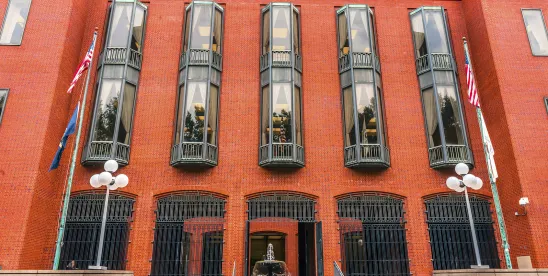The US Court of Appeals for the Federal Circuit reversed a district court’s decision in a patent dispute for a lack of subject matter jurisdiction because the plaintiff lacked constitutional and statutory standing. Intellectual Tech LLC v. Zebra Technologies Corporation, Case No. 22-2207 (Fed. Cir. May 1, 2024) (Prost, Taranto, Hughes, JJ.)
In 2011, OnAsset granted Main Street Capital a security interest in a patent owned by OnAsset. In 2013, Main Street notified OnAsset that it was in default and, in 2017, OnAsset and Main Street entered into a forbearance agreement. Around the same time, Intellectual Tech was formed as a subsidiary of OnAsset and was assigned the patent in which Main Street had security interest. Intellectual Tech entered into its own patent security interest agreement with Main Street. Later, like OnAssett, Intellectual Tech defaulted.
Intellectual Tech sued Zebra Technologies for patent infringement, asserting the patent that was the subject to the security interest. Zebra moved to dismiss for lack of standing since Intellectual Tech had defaulted with respect to the Main Street security interest agreement. The district court denied Zebra’s motion, affirming Intellectual Tech’s ownership over the patent and its right to enforce it against Zebra. Zebra argued that Main Street gained exclusive rights over the patent when OnAsset defaulted back in 2013. The district court disagreed but nevertheless granted Zebra’s motion regarding constitutional standing, concluding that Main Street still had a right to grant a license to the patent to Zebra. Despite Intellectual Tech’s efforts to cure the standing defect by joining Main Street to the lawsuit, the district court deemed it incurable and dismissed Intellectual Tech’s claims without prejudice. Intellectual Tech appealed.
The Federal Circuit reversed, determining that Intellectual Tech had an exclusionary right in the patent when it filed a complaint against Zebra. Zebra contended that Main Street’s authority to license the patent, as per the forbearance agreement, stripped Intellectual Tech of all exclusionary rights. Zebra presented two licensing-related arguments: Main Street’s exclusive licensing ability upon default nullified Intellectual Tech’s exclusionary rights, and even if both Main Street and Intellectual Tech could license upon default, Main Street’s nonexclusive capability still deprived Intellectual Tech of its rights.
The Federal Circuit disagreed, finding that the forbearance agreement did not suggest that, without further action from Main Street, the mere activation of Main Street’s options automatically divested Intellectual Tech of its rights. By rejecting this exclusive-rights contention, the Court did not evaluate whether Intellectual Tech would maintain constitutional standing under the interpretation.
The Federal Circuit distinguished exclusive and nonexclusive licensing contexts in explaining why the jurisprudence cited by Zebra (the Federal Circuit’s 2010 decision in WiAV Sols. LLC v. Motorola, Inc.) did not control. According to the Court, this differentiation underscored the importance of distinguishing between patent owners and licensees, as ownership typically entails baseline exclusionary rights, contrasting with a licensee’s limited freedom from suit.
Moreover, the Federal Circuit’s analysis also underscored the necessity to assess patent agreements thoroughly, particularly regarding assignment clauses. Zebra argued that Main Street’s option to transfer the patent divested Intellectual Tech of all exclusionary rights. But the Court disagreed, explaining that the mere existence of an unexercised assignment option did not immediately strip Intellectual Tech of its rights.
Practice Note: Understanding the complexities of patent licensing and assignment clauses is essential for discerning their impact on exclusionary rights. This case emphasizes the distinction between ownership and licensing rights, which is pivotal in evaluating constitutional standing in patent infringement cases.



 />i
/>i

